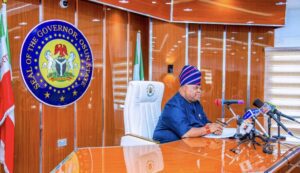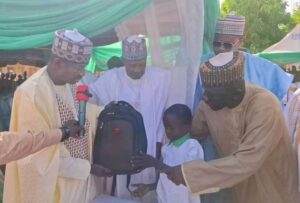Insecurity: VC advises parents against buying costly phones for students
Prof. Noah Yusuf, Vice-Chancellor, Al-Hikmah University, Ilorin, has advised parents and guardians against buying expensive phones for their children.
“Such expensive items expose such young people to kidnappers, robbers and other criminals,” Yusuf told the University’s stakeholders congress on Wednesday in Ilorin.
He explained that the quality of phones and similar materials purchased for youths, particularly those who are still in school, have been found to be attractive to criminals.
“That encourages them to either rob or kidnap such students in order to steal such property from them,” he said.
While the phone is very essential for students as it aids teaching and learning,
less expensive ones, which would serve the same functions, can be bought for the students and save them from criminally- minded individuals and groups.
“Buying phones worth N1 million, or with higher sums, for students is not advisable since such students can make do with phones that are not as expensive,” he said.
Citing a recent case, Yusuf said that a female student of the university was recently robbed of her hugely expensive phones, twice, by her boyfriend.
“The boy friend believed that he would make much money if he was able to dispossess the girl of her expensive phones,” he said.
Yusuf explained that following the first case of robbery, the parents of the girl bought her a better and more expensive phone, one only for the boyfriend to arrange for the theft of the second phone.
He also advised parents to cultivate the habit of paying unscheduled visits to their children and wards so as to know the kind of friends they move with.
“Such visits can help parents to take note of possible attitudinal changes for possible corrections,” he said.




